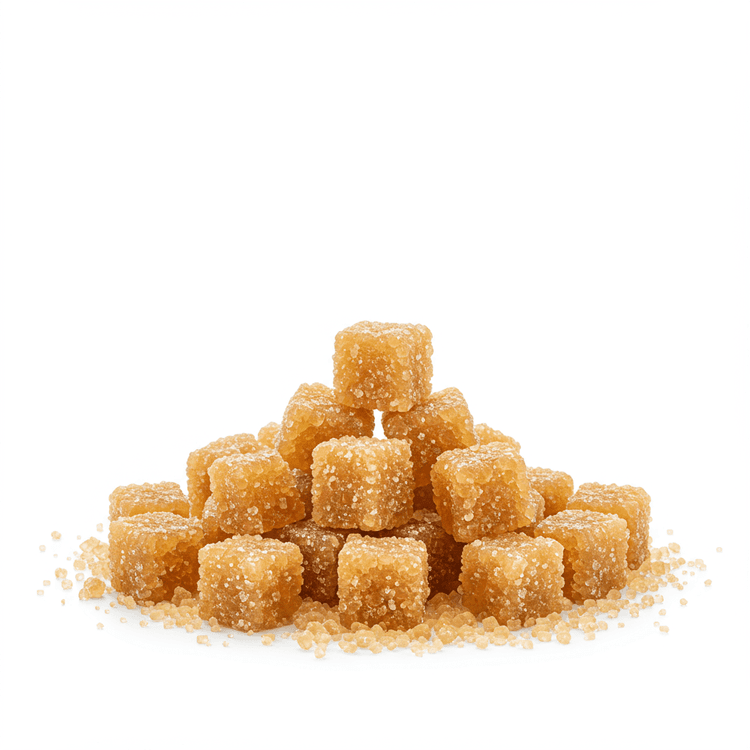
Sugar
Sugar , a ubiquitous ingredient in kitchens worldwide, is a sweet , crystalline carbohydrate derived from sources like sugarcane and sugar beets. It's prized for its distinctively sweet flavor, which enhances a wide range of dishes and beverages. The texture of granulated sugar is free-flowing and slightly coarse, while other forms, such as powdered sugar, are exceptionally fine and smooth. Common types of sugar include white granulated sugar, brown sugar (with its molasses content imparting a richer flavor), and raw sugar, each offering subtle variations in taste and color. Exploring different types of sugar can unlock unique flavor profiles in your recipes. Understanding the uses of sugar is fundamental to both baking and cooking.
Common Uses
- Used as a key ingredient in baking cakes, cookies, and pastries to provide sweetness, structure, and moisture. The sugar helps with browning and contributes to the overall texture of baked goods.
- Commonly added to hot and cold beverages like coffee, tea, lemonade, and cocktails to sweeten them and balance out other flavors.
- Employed in making jams, jellies, and preserves to not only sweeten the fruit but also to act as a preservative by drawing out moisture and inhibiting microbial growth.
- Utilized in creating sweet sauces, glazes, and marinades for both sweet and savory dishes. The sugar can caramelize and add depth of flavor to meats, vegetables, and other ingredients.
- Incorporated into homemade candies, such as hard candies, caramels, and fudge, where it serves as the primary building block for creating a variety of textures and flavors.
- Used in making ice cream and other frozen desserts, where sugar not only sweetens but also helps to lower the freezing point, resulting in a smoother and more scoopable texture.
Nutrition (per serving)
Nutrition (per serving)
Calories
387.0kcal (19.35%)
Protein
0.0g
Carbs
100.0g (36.36%)
Sugars
99.9g (100%)
Healthy Fat
0.0g
Unhealthy Fat
0.0g
% Daily Value based on a 2000 calorie diet
Nutrition (per serving)
Calories
387.0kcal (19.35%)
Protein
0.0g
Carbs
100.0g (36.36%)
Sugars
99.9g (100%)
Healthy Fat
0.0g
Unhealthy Fat
0.0g
% Daily Value based on a 2000 calorie diet
Health Benefits
- Provides a quick source of energy for the body.
- Contributes to brain function by supplying glucose.
- Can improve mood and provide a temporary sense of well-being.
- Used by the body as a building block for more complex carbohydrates and other compounds.
Substitutes
Chefadora AI is here.
Experience smarter, stress-free cooking.
Storage Tips
To maintain the quality of sugar, store it in an airtight container in a cool, dry place away from direct sunlight and moisture. Granulated sugar can typically be stored at room temperature for an extended period, even indefinitely, if stored properly. Brown sugar should be kept in an airtight container to prevent it from hardening; adding a slice of bread or a marshmallow can help maintain its moisture. Powdered sugar should also be stored airtight to prevent clumping.
Marnirni-apinthi Building, Lot Fourteen,
North Terrace, Adelaide, South Australia, 5000
Australia

